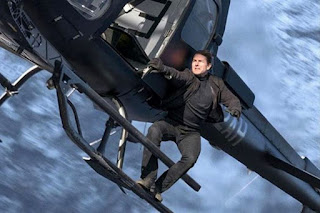Reading
I mentioned recently "The Great Influenza," a book about the 1918 pandemic, which is worth reading just to see the way government indifference and incompetence were a part of that disaster, and people who should have known better ignored warning signs and ways to control the disaster. As it was ever thus, right?
But I've done some other reading as well, including "Orson Welles: One-Man Band," the third volume of Simon Callow's biography of Welles, and as engrossing a read as the two previous volumes. (A fourth will complete the saga.) This book covers a period that included two Welles gems, "Touch of Evil" and "Chimes at Midnight" (also known as "Falstaff"), along with near-successes (some torpedoed by Welles's boredom as the project went on), failures (ditto), unrealized ideas, unpaid bills, unsatisfied appetites, unsuitable roles, It's a rapid read, full of accounts from people who knew Welles and who kept diaries, breaking down Welles's exaggerations and outright fantasies, finding the good even in many of his less tha good projects, examining Welles's skill as a set designer and limitations as an actor -- and showing how, over time, even if he did not change much, the perceptions of him did. The boy wonder became for a time a subject for disdain and mockery, only to have his reputation revive as his work was studied more closely than his personal excesses. The life will not end well, as Callow indicates in a summary of what lies ahead in the final book and the 20 years it will cover. But the oh, the ride, such a ride Callow so deftly describes.
Before Welles (and before "Influenza"), I lingered over "The Last Gunfight" by Jeff Guinn, a chronicle of the life of Wyatt Earp before and after the gunfight at the O.K. Corral (which, as this and other texts have pointed out, did not take place in the O.K. Corral). I've spent more than a little time with Earp movies -- You say "Tombstone," I say, "And hell's coming with me!" -- but Guinn's book is a richer, more complex tale, quite willing to note the flaws in Earp, his brothers, his enemies and Doc Holliday, as well as the complicated life and law what was fast becoming the end of the Old West in Earp's era. It's too much to say that the real-life Earp was a hero, however often fiction has painted him as one, but he is a stirring personality and Guinn's storytelling finds the drama even in the legal maneuvering that often involved Earp,
Looking for some light reading, I picked up a bundle of Loren Estleman's Amos Walker novels, and my joy was limited in the first two I read. Oh, they're fast-moving enough, with some snap in the dialogue, but they're molded from familiar elements, the echoes of Chandler and Hammett pretty obvious, and the overall texture missing the freshness of a Laura Lippman or Julia Keller or Kathy Reichs. In addition, there's an offhanded homophobia that made me even less likely to continue with the series, especially with so many better writers at work.


Comments
Post a Comment